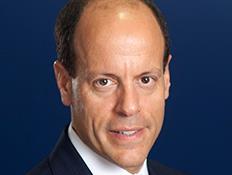Dealing with investors takes time, energy and commitment. At no point is that clearer than when sitting on my third consecutive red-eye flight with a fellow passenger’s body spilling across his seat and resting on my arm.

Working the world’s time zones for maximum efficiency, spending hours in the sky and using airports around the world to shower and shave appear to be prerequisites for securing and retaining investors in a world that is still recovering from the financial crisis.
When raising money for our last fund in 2011, despite its focus on distressed assets and the state of Europe, serious concerns about Europe’s property markets meant our traditional pool of US investors was more hesitant to inject capital. Widening our investor base enabled us to raise €1.1bn, but to do that involved more than 450 meetings and 100 individual due-diligence sessions over a 12-month period and, inevitably, across numerous time zones.
Economic events have led to an investment world that, to this day, remains fickle. This makes identifying likely sources of capital extremely difficult: it is no longer possible to pick out one or two global locations where investors are interested in European property. Just as in the residential market where developments in London, for example, see buyers from the Middle East, Far East, US, western Europe, eastern Europe, Russia and Australasia, the nationalities of investors interested in European real estate are just as disparate. There is no longer a common view on whether professional investors in certain countries are positive or negative about Europe, prefer direct investment to investing via funds, or are likely to invest larger or smaller sums.
The upshot of all this is that running a real-estate private equity business investing in Europe now requires harder graft and more legwork than at any time in the past 15 years.
The doors to organisations with a clear investment proposition have never been fully shut but memories of the recent financial crisis are still fresh. While confidence is returning, the specific effects of the downturn on individual businesses have impacted their investment policies in their own unique ways. The dust has not yet settled to an extent that enables us to generalise about who is positive or negative about what. As far as Europe is concerned, some think that the opportunities are exceptional based on the beta performance alone (expected improvements in market conditions), with the alpha performance (value uplift achieved through asset management) almost a secondary consideration. Others, however, believe there is a huge wall of capital that will see everything become overpriced and that there is therefore the risk of a bubble regardless of the property class, location or its characteristics.
Meeting with investors in the past, I could be confident that I would face fairly similar lines of interrogation in each session. Now, however, questions can range from detailed, granular questions on specific cities and asset types to macro views on a particular country’s policies or perspectives on operating partners.
This again highlights the disparity of views and level of confusion about western European markets. The area is so wide and the perceptions presented by the media and analysts so diverse that numerous questions present themselves. Even professional investors sometimes do not know where to start.
The availability of capital and the need for people to deploy it makes the market precarious for those who are inexperienced - you have to know where to look, understand the risks and have the right contacts and local knowledge. For Patron, as a niche player, the opportunities and returns available across western Europe remain attractive; the only difficulty is communicating that to investors with passion after three days of travel in conditions that are, arguably, more challenging than kayaking across the English Channel.
Keith Breslauer is managing director of Patron Capital





























No comments yet